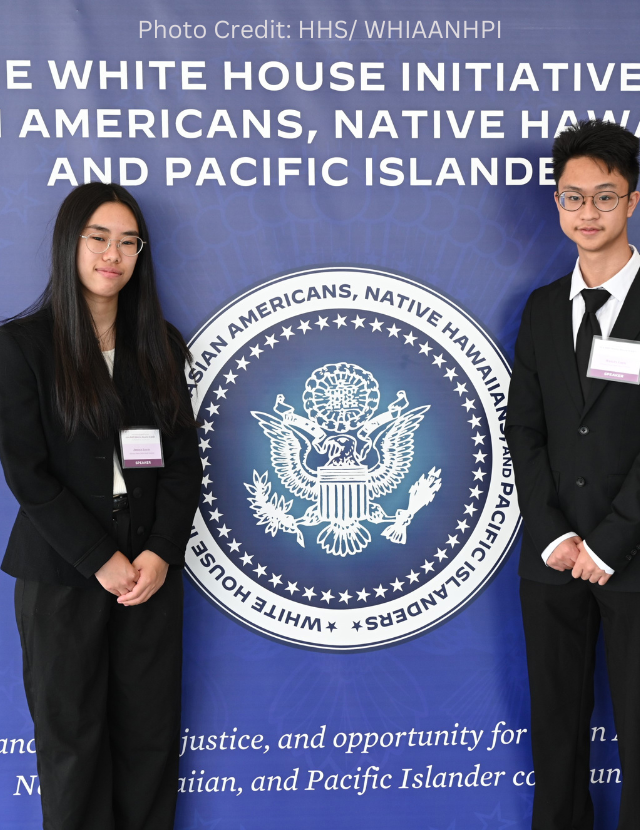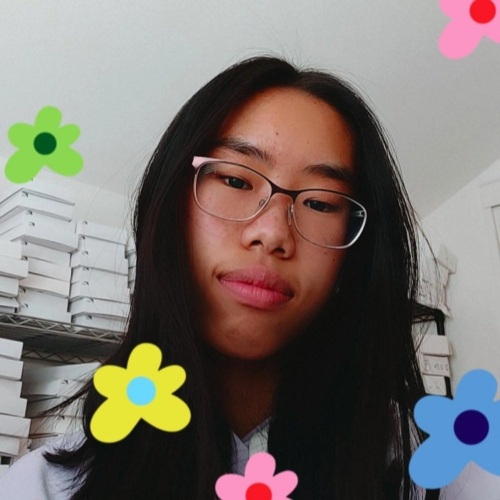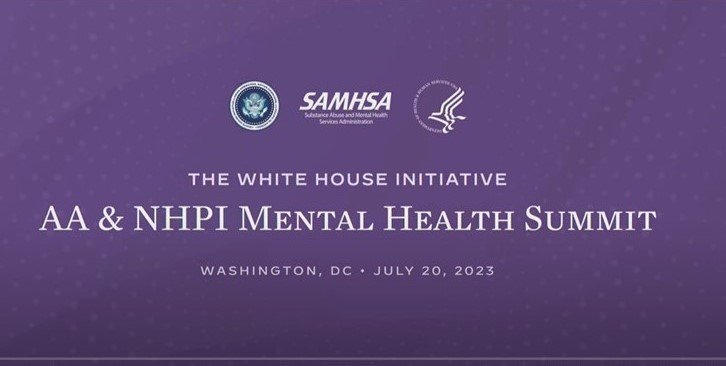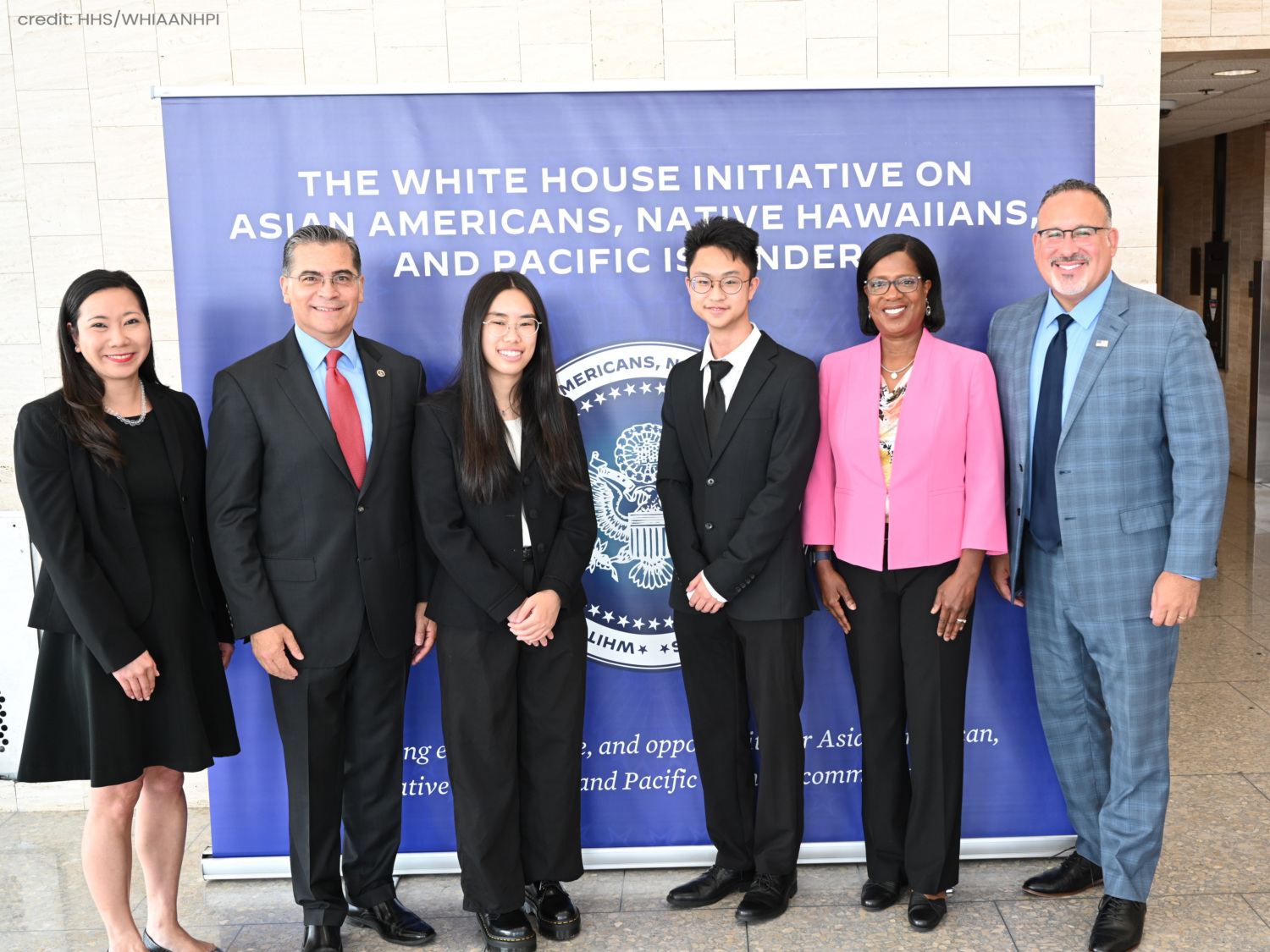Youth Advocates Speak at White House Summit on Asian American, Native Hawaiian, and Pacific Islander Mental Health
Highlights

During the first-ever White House Summit on Asian American, Native Hawaiian, and Pacific Islander Mental Health, youth advocates with PHI’s Lotus Project shared their own personal challenges with mental health care in schools and communities, reflections from student peers and innovative strategies to address these challenges on a national scale.
Challenges in Communities
When Asian American, Native Hawaiian and Pacific Islander communities face mental health crises, longstanding challenges – including cultural stigma within families and communities about seeking counseling, lack of culturally rooted mental health providers and language barriers – mean these communities are some of the least likely to recieve mental health care.
The COVID-19 pandemic and racism fueled rising rates of depression, anxiety, stress, and physical health challenges among these communities. In 2020, suicide became the leading cause of death among Asian Americans and Pacific Islanders (ages 10 to 19) and the second leading cause of death among those who were 20-34.
Youth Advocate for Change
Two high school youth advocates with the Public Health Institute’s Lotus Project spoke at this year’s White House Summit on Asian American, Native Hawaiian, and Pacific Islander Mental Health to shed light on these challenges. The summit was held on July 20, 2023, featuring mental health professionals, federal policymakers, Biden-Harris Administration leaders and community leaders across the nation who came together to advance equity and improve access to behavioral health care for Asian Americans and Native Hawaiians and Pacific Islanders.
Five critical sessions were held, and attendees worked together to help identify federal and local solutions to help address unique behavioral health challenges that Asian American, Native Hawaiian and Pacific Islanders face in their communities.
Jessica Louie, who just finished high school in Oakland, and has worked as a youth advocacy intern with PHI’s Lotus Project for three years, spoke during the panel, “The Impact of Hate Crimes, Violence, Racism and Microaggressions on Mental Health: Harnessing Collective and Cultural Strengths.” Listen in at the 1:15:43 mark.

During the summit, I hope for the adults, service providers, leaders, and changemakers in the room and across the country to please listen to youth voices and collaborate with us to implement change to improve the mental health outcomes of Asian youth.Jessica Louie
Youth Advocate Intern, Lotus Project, Public Health Institute
Following Louie was Wesley Chen, who also graduated high school this spring in Oakland, and worked as an advocacy intern with PHI’s Lotus Project. He joined the panel, “Beyond Stigma: Expanding Access, Integrating Care.” Listen in at the 2:22:20 mark.

Imagine you’re an Asian high school student. You’ve just had racist remarks thrown at you at school and you’ve been bullied for many weeks. You’re mentally exhausted and suffering. Who do you ask for help?Wesley Chen
Youth Advocate Intern, Lotus Project, Public Health Institute
Both interns have spent their time at the Lotus Project educating their Asian American peers about mental health, and advocating for more school counselors, through blog posts and social media outreach.
Joining them at the summit was also PHI’s Tooru Nemoto, Principal Investigator of Health Intervention Projects for Underserved Populations (HIPUP) and Mariko Iwamoto, Project Director of HIPUP who spoke during a workshop session.

Jessica Louie is featured speaking at the summit during the 1:15:43 mark of this video. Wesley Chen is featured speaking at the 2:22:20 mark.
The summit was held during National Minority Mental Health Awareness Month and is the first Asian American, Native Hawaiian and Pacific Islander mental health summit ever convened by the Biden-Harris Administration. The summit takes place on the heels of the Administration’s release of the first-ever national strategy that aims to advance equity and opportunities for Asian American, Native Hawaiian and Pacific Islander communities and transform how mental health is understood, treated and accessed among this population.
The summit was hosted by the White House Initiative on Asian Americans, Native Hawaiians, and Pacific Islanders, the Substance Abuse and Mental Health Services Administration (SAMHSA), and the U.S. Department of Health and Human Services.
The Lotus Project is a collaboration between the Public Health Institute (PHI) and Richmond Area Multi-Services (RAMS) that provides technical assistance, such as workshops, webinars, and consultations to mental health service providers, clinicians, community health workers and school staff who work with Asian American & Asian Immigrant (AAAI) children and families affected by traumatic events and stress. The project provides technical assistance and resources regarding the implementation of culturally competent and evidence-based interventions and promising practices to reduce immediate distress from exposure to traumatic events. To learn more, please visit their website.
Work With Us
You change the world. We do the rest. Explore fiscal sponsorship at PHI.
Support Us
Together, we can accelerate our response to public health’s most critical issues.
Find Employment
Begin your career at the Public Health Institute.

